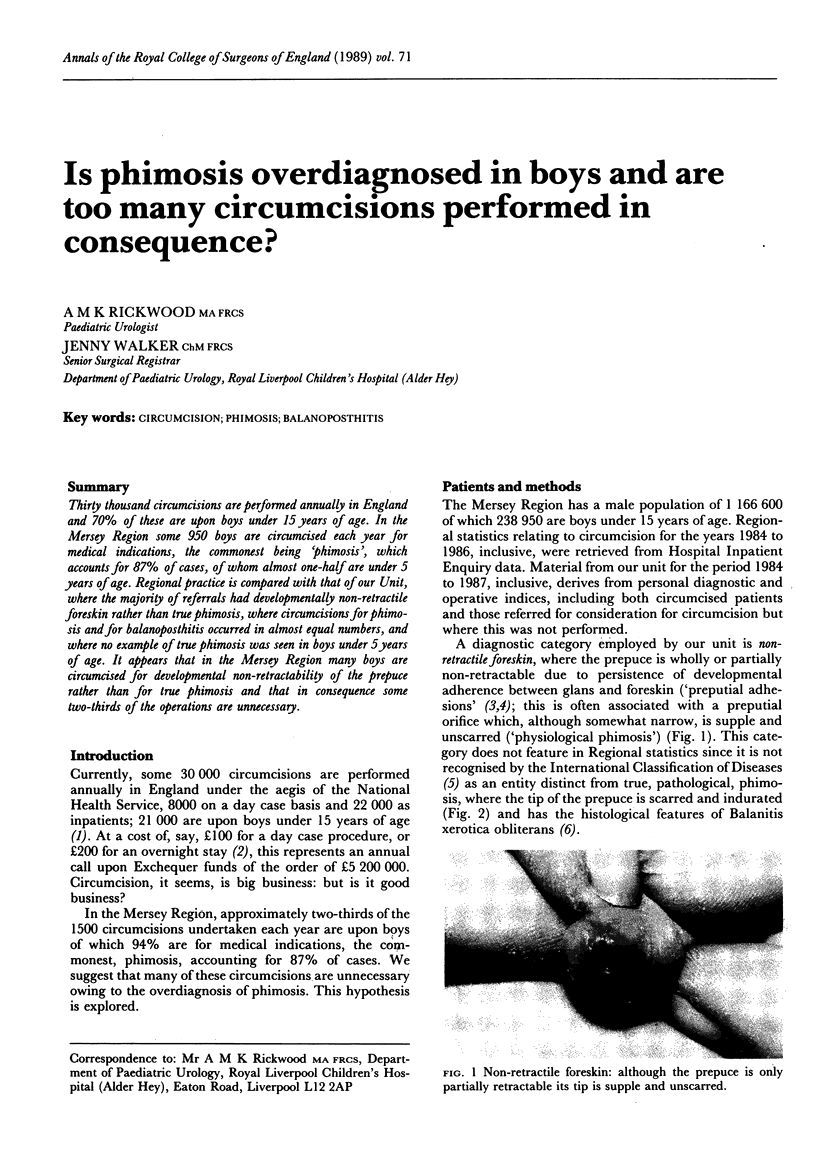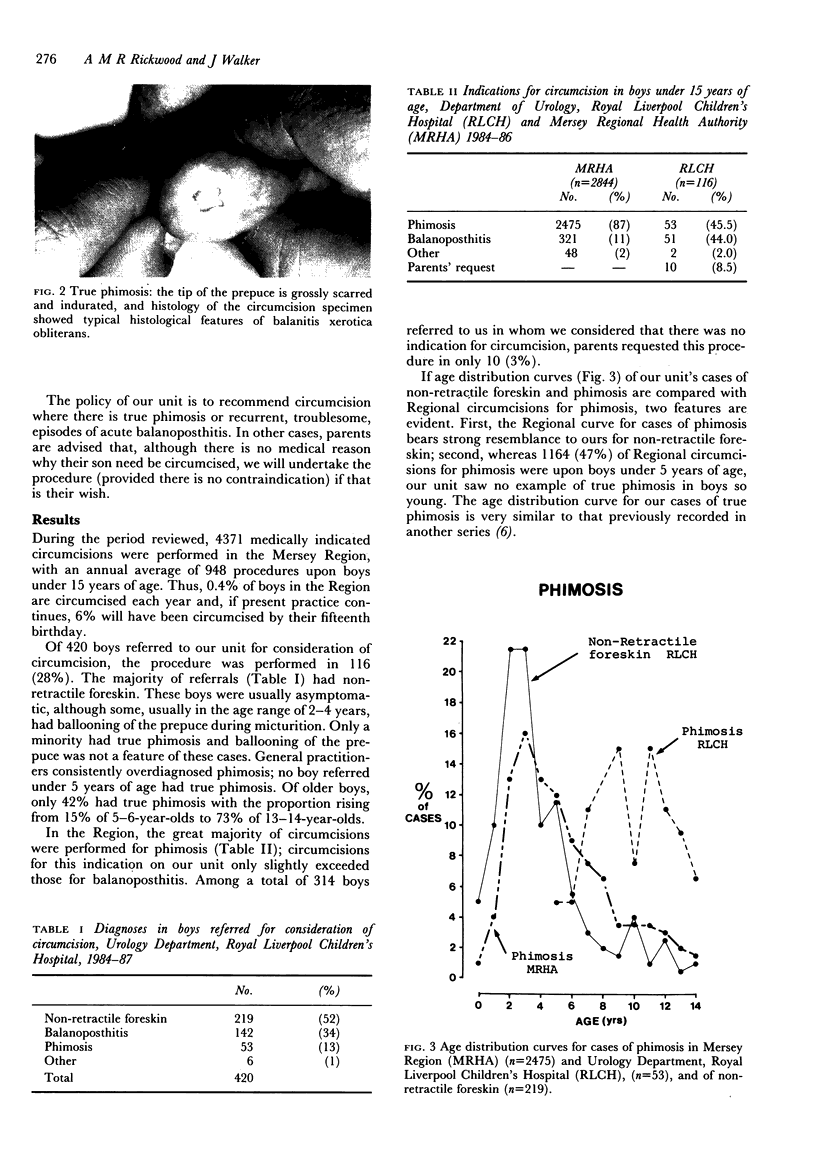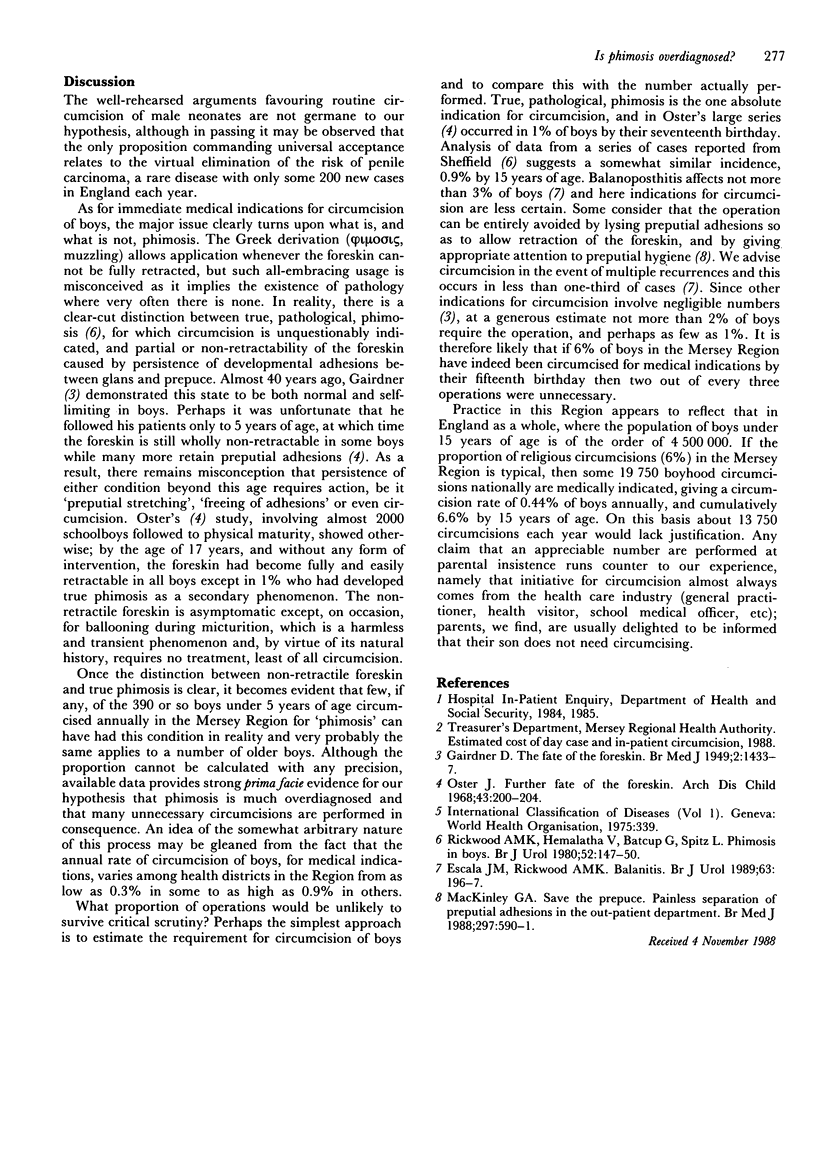Abstract
Thirty thousand circumcisions are performed annually in England and 70% of these are upon boys under 15 years of age. In the Mersey Region some 950 boys are circumcised each year for medical indications, the commonest being 'phimosis', which accounts for 87% of cases, of whom almost one-half are under 5 years of age. Regional practice is compared with that of our Unit, where the majority of referrals had developmentally non-retractile foreskin rather than true phimosis, where circumcisions for phimosis and for balanoposthitis occurred in almost equal numbers, and where no example of true phimosis was seen in boys under 5 years of age. It appears that in the Mersey Region many boys are circumcised for development non-retractability of the prepuce rather than for true phimosis and that in consequence some two-thirds of the operations are unnecessary.
Full text
PDF


Images in this article
Selected References
These references are in PubMed. This may not be the complete list of references from this article.
- Escala J. M., Rickwood A. M. Balanitis. Br J Urol. 1989 Feb;63(2):196–197. doi: 10.1111/j.1464-410x.1989.tb05164.x. [DOI] [PubMed] [Google Scholar]
- GAIRDNER D. The fate of the foreskin, a study of circumcision. Br Med J. 1949 Dec 24;2(4642):1433-7, illust. doi: 10.1136/bmj.2.4642.1433. [DOI] [PMC free article] [PubMed] [Google Scholar]
- MacKinlay G. A. Save the prepuce. Painless separation of preputial adhesions in the outpatient clinic. BMJ. 1988 Sep 3;297(6648):590–591. doi: 10.1136/bmj.297.6648.590. [DOI] [PMC free article] [PubMed] [Google Scholar]
- Oster J. Further fate of the foreskin. Incidence of preputial adhesions, phimosis, and smegma among Danish schoolboys. Arch Dis Child. 1968 Apr;43(228):200–203. doi: 10.1136/adc.43.228.200. [DOI] [PMC free article] [PubMed] [Google Scholar]
- Rickwood A. M., Hemalatha V., Batcup G., Spitz L. Phimosis in boys. Br J Urol. 1980 Apr;52(2):147–150. doi: 10.1111/j.1464-410x.1980.tb02945.x. [DOI] [PubMed] [Google Scholar]




